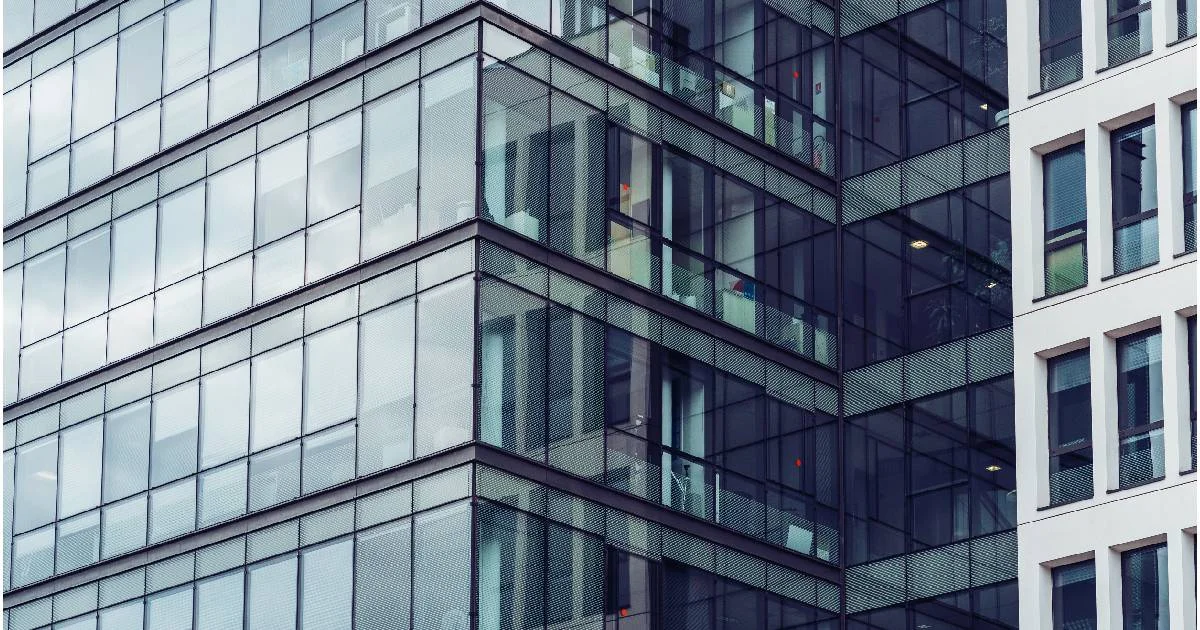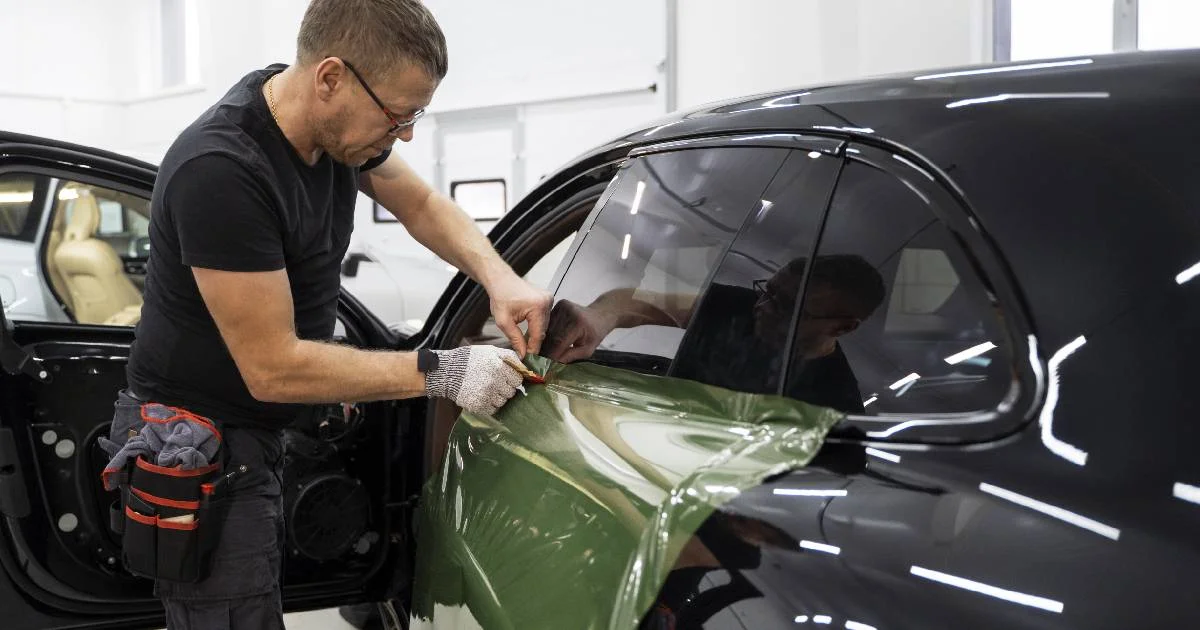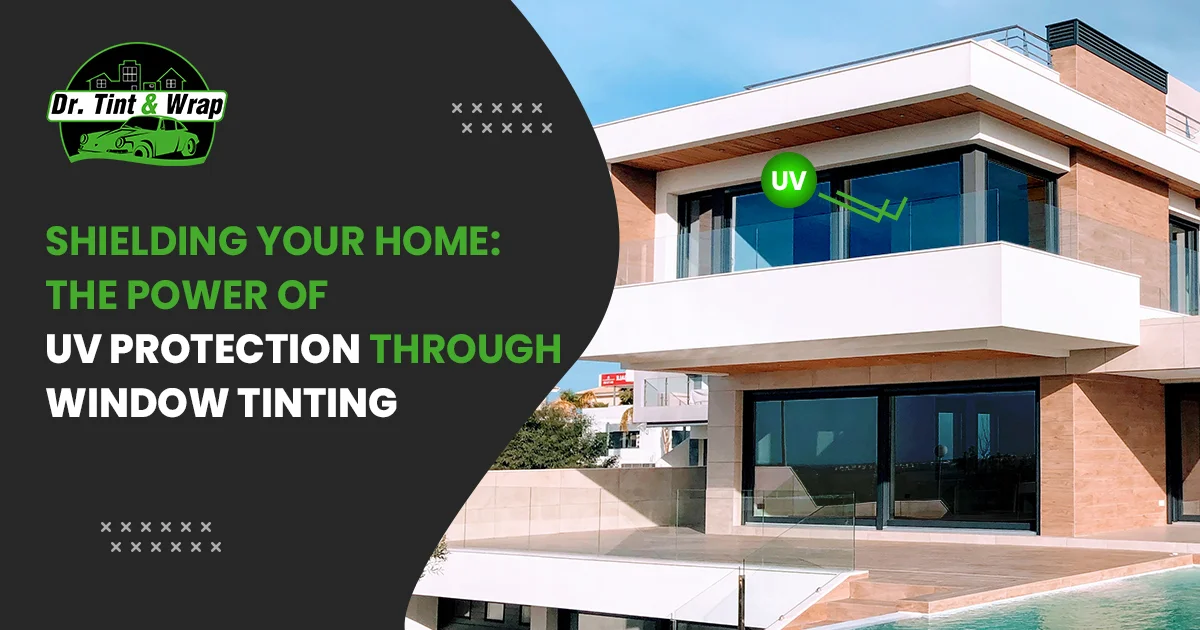
Choosing the Right Window Tint for Your Office: A Comprehensive Guide
28 Dec 2023, By AdminOffice window tinting is a valuable investment that can enhance the aesthetics, comfort, and energy efficiency of your workspace. Whether you're looking to reduce glare, improve privacy, or enhance the overall appearance of your office, choosing the right window tint is crucial. In this comprehensive guide, we'll explore the key factors to consider when selecting office window tinting to ensure you make an informed decision that aligns with your business needs.
Purpose of Window Tinting
Before diving into the world of window tint options, it's essential to identify the specific purposes for which you want to apply tint to your office windows. Common objectives include: Glare Reduction: Tints can minimize glare from the sun, creating a more comfortable working environment by reducing eye strain and distractions. Privacy Enhancement: Certain tints provide one-way visibility, allowing those inside the office to see out while preventing outsiders from peering in. Energy Efficiency: Window films can help regulate the temperature within your office, reducing the need for excessive air conditioning and heating. UV Protection: Tints can block harmful UV rays, protecting furniture, flooring, and equipment from fading and damage.
Types of Window Tint
Solar Control Films: These tints are designed to reduce heat and glare from the sun, promoting a more comfortable and energy-efficient workspace. Privacy Films: Ideal for meeting rooms or areas requiring confidentiality, privacy films can obstruct the view from the outside while maintaining visibility from within. Decorative Films: If aesthetics are a priority, decorative films come in various patterns and designs to enhance the visual appeal of your office. Safety and Security Films: These films add an extra layer of protection by holding shattered glass together, improving safety in the event of breakage.
Why should I consider office window tinting?
Office window tinting offers several benefits, including improved energy efficiency, reduced glare, enhanced privacy, and protection against harmful UV rays. Tinted windows can create a more comfortable and productive work environment for employees.
What factors should I consider when choosing the right window tint for my office?
Several factors should influence your decision, such as the type of film, level of tint, local regulations, and your specific needs. Consider factors like the amount of natural light you want, the level of privacy required, and the aesthetic appeal of the tint.
What types of window tint films are suitable for office use?
A: There are various types of window tint films designed for different purposes. Some common types include solar control films, privacy films, decorative films, and safety/security films. Solar control films are popular for reducing heat and glare, while privacy films can enhance confidentiality within the office.
How does office window tinting contribute to energy efficiency?
Window tinting can significantly improve energy efficiency by reducing the heat entering the office space. Solar control films, in particular, can block a considerable amount of heat, helping to maintain a comfortable temperature and reducing the need for excessive air conditioning.
Are there any legal considerations when it comes to office window tinting?
Yes, local regulations may govern the permissible level of tint for commercial buildings. It's crucial to check with local authorities to ensure compliance with tinting laws. Non-compliance could result in fines or the need to remove the tint.
Can window tinting protect against UV rays?
Yes, many window tint films are designed to block a significant percentage of harmful UV rays. This not only protects employees from potential health issues but also helps prevent furniture and interior elements from fading due to prolonged exposure to sunlight.
How do I choose the right level of tint for my office windows?
The level of tint you choose depends on your specific needs. If glare reduction and heat rejection are top priorities, a darker tint with a higher Solar Heat Gain Coefficient (SHGC) may be suitable. If maintaining a more open and bright environment is crucial, a lighter tint with lower SHGC may be preferred.
Can office window tinting enhance security?
Yes, certain types of window tint films, such as safety/security films, are designed to reinforce glass, making it more resistant to breakage. This can enhance the security of your office space by providing an additional layer of protection against forced entry or accidents.
How do I maintain and clean tinted windows in my office?
Cleaning tinted windows requires gentle care to avoid damaging the film. Use a mild soapy solution and a soft cloth or sponge for cleaning. Avoid abrasive materials or harsh chemicals, as these can scratch or damage the tint.
What is the expected lifespan of office window tinting?
The lifespan of window tinting can vary depending on factors such as the quality of the film, installation, and environmental conditions. High-quality films, when professionally installed, can last for many years. It's essential to follow the manufacturer's recommendations for maintenance and care to extend the lifespan of the tint. Choosing the right window tint for your office involves considering various factors to ensure it meets your specific requirements. Whether it's improving energy efficiency, enhancing privacy, or adding a decorative touch, the right office window tint can contribute to a more comfortable and productive workspace.

The Benefits of Car Window Tinting: UV Protection, Privacy, and Style
28 Dec 2023, By AdminMar owners invest their time and effort in maintaining vehicles. Like from regular oil changes to car washes. However, one essential aspect that often gets overlooked is car window tinting. Car window tinting offers a range of benefits that can enhance your driving experience and protect you, your loved ones and your vehicle. In this blog, we will explore the top three benefits of car window tinting: UV protection, privacy, and style.
UV Protection
We all know harmful UV sunrays not only damage our skin but also fade the interior of our car. Car window tinting acts as a barrier that blocks up to 99% of harmful UV rays, protecting you and your passengers from potential skin damage. This also reduces the risk of skin cancer. Additionally, car window tinting helps prevent the fading and cracking of your car's interior, including the dashboard, seats, and carpets, by blocking the sun's harmful rays. This can help prolong the lifespan of your vehicle's interior and maintain its resale value.
Privacy
Privacy is another significant benefit of car window tinting. It can provide you with a sense of security and peace of mind while driving your car. Tinted windows create a barrier that makes it difficult for outsiders to see inside your vehicle, ensuring your belongings and passengers remain hidden from prying eyes. This can be especially useful when you have valuable items in your car or when you want to protect your privacy, such as when changing clothes, breastfeeding, or having personal conversations.
Styling
Car window tinting can also add a touch of style to your vehicle. Tinted windows give your car a sleek and sophisticated appearance, enhancing its overall aesthetics. With various shades and colors available, you can choose a window tint that complements your car's exterior and reflects your personal style. Custom window tinting options are also available, allowing you to create a unique and customized look for your vehicle.
Bonus Tip
In addition to these three main benefits, car window tinting can also provide other advantages such as reducing glare while driving, improving safety by minimizing shattered glass in case of an accident and providing insulation to keep your vehicle cooler in hot weather, reducing the need for excessive air conditioning and saving on fuel costs. It's essential to note that car window tinting is regulated by laws in jurisdictions, and it's crucial to comply with the legal requirements.
Conclusion
In conclusion, car window tinting offers a range of benefits that go beyond aesthetics. It provides UV protection, privacy, and style to enhance your driving experience and protect you and your vehicle. If you're considering window tinting for your car, make sure to research and choose a reputable and experienced professional like Dr. Tint & Wrap to ensure proper installation and compliance with legal regulations. Enjoy the many advantages of car window tinting and drive in comfort, style, and safety!

The Ultimate Guide to Vinyl Wrap in Hamilton: Tips and Tricks for a Stunning Finish
28 Dec 2023, By AdminVinyl wrapping has become an increasingly popular method for transforming the appearance of vehicles, furniture, and other surfaces. In Hamilton, the trend has caught on, with enthusiasts and businesses alike embracing the versatility and durability of vinyl wraps. Whether you're looking to add a personal touch to your car or give your business vehicle a professional look, mastering the art of vinyl wrapping is essential. In this comprehensive guide, we'll explore the ins and outs of vinyl wrap in Hamilton, providing you with tips and tricks for achieving a stunning finish.
Understanding Vinyl Wrap
Before diving into the application process, it's crucial to understand the basics of vinyl wrap. Vinyl wraps are thin, adhesive-backed films that adhere to surfaces, creating a protective layer that can be customized with various colors, textures, and designs. They offer a cost-effective alternative to traditional paint jobs, allowing for easy removal and updates.
Choosing the Right Vinyl
Selecting the right vinyl is the foundation of a successful wrap. Consider the surface you're wrapping and the desired finish. For vehicles in Hamilton's diverse weather conditions, opt for high-quality, weather-resistant vinyl to ensure longevity. Matte, gloss, satin, and metallic finishes are popular choices, each offering a unique aesthetic.
Preparing the Surface
Proper surface preparation is key to a flawless vinyl wrap. Ensure that the surface is clean, smooth, and free from any dirt, grease, or wax. Use a mild detergent and water solution to clean the surface thoroughly, and follow up with isopropyl alcohol to remove any remaining residue. Repair any existing damage, such as dents or scratches, before starting the wrapping process.
Essential Tools for the Job
Gather the necessary tools before beginning the vinyl wrap process. Essential tools include a squeegee, heat gun, knife or cutting tool and measuring tape. Investing in high-quality tools will make the application smoother and result in a professional-looking finish.
Mastering the Application
The key to a successful vinyl wrap lies in the application technique. Start by carefully aligning the vinyl with the target surface, ensuring a slight overhang on all edges. Use a squeegee to remove air bubbles and smooth out the vinyl, working from the center outward. A heat gun can be used to stretch the vinyl around curves and contours for a seamless finish.
Trimming and Finishing Touches
Once the vinyl is applied, trim the excess material with precision. A sharp cutting tool is crucial for achieving clean edges and corners. Pay attention to details, such as door handles and curves, to ensure a professional look. Seal the edges with a heat gun for added durability and longevity.
Maintenance and Care
To preserve the quality and appearance of your vinyl wrap in Hamilton's varying weather conditions, follow a routine maintenance schedule. Wash your wrapped surface regularly with a mild detergent, avoiding abrasive cleaners that could damage the finish. Additionally, park your wrapped vehicle in shaded areas whenever possible to minimize exposure to harsh sunlight.
Conclusion
Vinyl wrapping in Hamilton opens up a world of creative possibilities for vehicle customization and branding. By understanding the nuances of the process and incorporating the tips and tricks outlined in this guide, you can achieve a stunning finish that not only turns heads but also stands the test of time. Whether you're a DIY enthusiast or seeking professional services, mastering the art of vinyl wrap will undoubtedly elevate your style and make a lasting impression on the streets of Hamilton.

Shielding Your Home: The Power of UV Protection Through Window Tinting
28 Dec 2023, By AdminIn the pursuit of creating a cozy and inviting home, we often invest in exquisite furniture, delicate fabrics, and beautiful artwork. However, while we bask in the warmth of sunlight filtering through our windows, we might unknowingly subject our prized possessions to potential harm. Ultraviolet (UV) rays, invisible but potent, can cause irreparable damage to our furniture, flooring, and other cherished items. Fortunately, there's a simple yet effective solution – window tinting. In this blog, we'll explore the significance of UV protection through window tinting and how it preserves the integrity of your home.
Understanding the Threat: UV Rays
UV rays, a component of natural sunlight, are notorious for their ability to fade and deteriorate materials over time. Wood, fabric, leather, and even artwork are vulnerable to the harmful effects of prolonged exposure. Traditional windows offer little defense, allowing these rays to penetrate and wreak havoc on your interiors. This is where window tinting steps in as a guardian, forming an invisible shield against these damaging rays.
The Role of Window Tinting: A Protective Barrier
- Preventing Fading: One of the primary benefits of window tinting is its capacity to reduce fading. Tinted windows block a significant portion of UV rays, ensuring that your furniture and flooring retain their vibrant colors and textures for a more extended period. Say goodbye to the washed-out hues and say hello to long-lasting elegance.
- Preserving Fabrics and Upholstery: Fabrics, especially those found in curtains, upholstery, and rugs, are highly susceptible to UV damage. Window tinting safeguards these textiles, prolonging their lifespan and maintaining their luxurious appeal. Your curtains will stay rich and your upholstery will remain plush, all thanks to the protective tint.
- Safeguarding Art and Valuables: Artwork and valuable items, such as antique furniture or delicate ornaments, deserve special care. Window tinting acts as a shield, allowing you to display your treasures without fear of deterioration. Your art collection will stay vivid, and your valuables will maintain their allure, enhancing your home's aesthetics for years to come.
The Added Benefits: Beyond UV Protection
- Energy Efficiency: Window tinting not only protects against UV rays but also improves your home's energy efficiency. By blocking excessive heat during summers and retaining warmth in winters, tinted windows contribute to a more comfortable living environment and reduced energy bills.
- Enhanced Privacy and Security: Tinted windows offer enhanced privacy, making it difficult for prying eyes to peer inside. Additionally, they reinforce your home security, acting as a deterrent against potential intruders.
Conclusion
A Brighter, Safer Tomorrow In the battle against the invisible menace of UV rays, window tinting emerges as a reliable ally. By investing in quality window films, you not only protect your furniture, flooring, and cherished possessions but also create a more energy-efficient, secure, and private home. Embrace the transformative power of window tinting, and let your home shine brightly while staying shielded from harm. Remember, a small step today can lead to a brighter, safer tomorrow for your home and everything within it.
